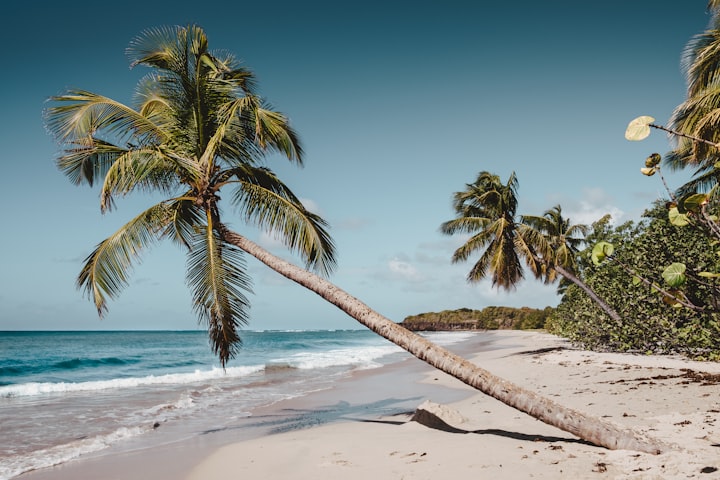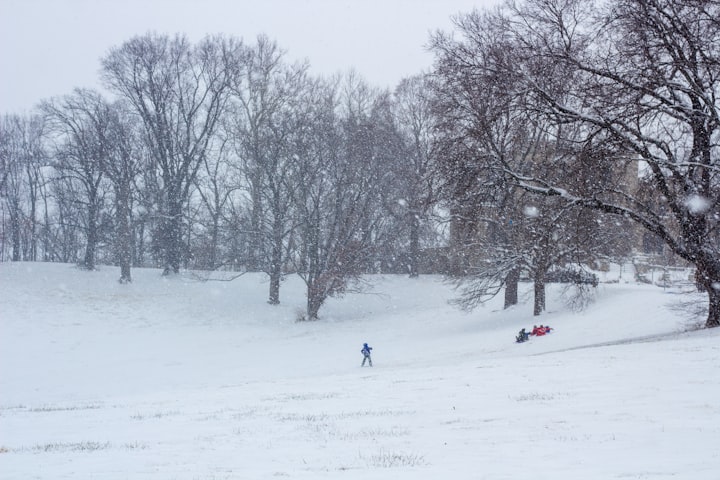The Truly Cursed Life & Lingering Death of Captain Ward
A man’s a monkey, a monkey’s a man.

Ward was Truly Cursed thrice in life. The first was upon his blood-soaked birthing bed, just after he was cut from his mother’s lifeless body. Surveying the scene, his grieving father had deemed the wailing newborn anathema and bid The Devil to take him as well, but it was merciful midwives who carried him off to the orphanage where he was raised on thin gruel and cruelty. Whether Old Scratch had a hand in the miseries to follow, only The Fates might say and they remain tight-lipped as always.
Young Ward became a cutpurse whose thievery more than once turned to violence. The second True Curse was delivered via the dying exhalations of an exsanguinating victim, neither his first nor his last, who had bid him to know no peace so long as he lived. Taking coins pilfered from the corpse, Ward went to sea to escape the consequences of his crime. The remainder of his life was spent upon the water, where he learned seacraft serving under a series of brutal men. Following their example, he rose through the ranks, and eventually became captain of a ship of his own. Arrogant in his authority, he was always hated by those beneath him, as he perpetuated the barbarism that was all he’d ever known, always quick to unsheath the knife he carried, and not above leaving scars to get his point across.
Captain Ward’s conscience, if he’d ever had one, was long erased by the time his crew mutinied and set him adrift in a lifeboat with his knife and single canteen, but it was with some regret that he watched them sail away, with the cabin boy’s damning shout that he should never know Heaven nor Hell still echoing in his ears. This was the third True Curse, and the last human words his mortal ears would ever hear.
Little could he imagine the purgatory that awaited him. Drifting for days, he rationed his water as long as he could, but was gazing thirstily over the gunwale at the salt sea when he spied an island in the distance. Paddling furiously to the forested shore, he finally ran aground in the place where he would spend the remainder of his days.
The uninhabited island was merely a ring of sandy beach surrounding a lush forest that climbed the sides of a stumpy mountain, the remains of a volcano that had last erupted before men walked the earth. At its peak was a fang-like outcropping of rock. Captain Ward christened the place “Fang Island,” pouring seawater from his tri-corner hat, as he collapsed and kissed the sand.
For some years Ward eked out a meager existence, gathering fresh water from a spring at the base of the hill’s eastern slope. He ate mostly coconuts and snared the occasional monkey in traps baited with slices of the white fruit. The troupe of apes prized cracked coconuts above all else, eschewing the labor involved in obtaining the flesh themselves, and Ward counted on their greed to fill his belly. Each time he caught one, he’d say the same thing before plunging the knife in and quieting the shrieks, “A man’s a monkey, a monkey’s a man.”
The simians hated him as much as any crew he’d ever commanded, and would pelt him with stones each time he’d go to check his traps or fill his canteen. Ward would howl and wail back at them, throwing rocks of his own and taking pleasure in their fear and acrimony.
It was a harsh, hungry life, with countless miserable nights spent in a ramshackle hut he had constructed from the lifeboat. When he tripped over a rock and broke his leg while chasing a seagull, it was with some measure of relief that he dragged himself up the beach until he was beneath a tree and laid down to die.
For days, he festered in agony, in too much pain to hunger, though his thirst was torture beyond compare. Fever raged through his body, and as he succumbed, he hallucinated those he had killed gathering around him. Ward's passing was witnessed by a cadre of monkeys in a nearby tree, who hooted as the light finally left his eyes.
As the sun emerged over the horizon, spilling red-amber rays over the island, Captain Ward stood and tried to remember what had happened. He felt no pain, no hunger, no thirst, and no warmth from the sunlight. With some alarm he noticed that he cast no shadow, and as he spun, disoriented and trying to make sense of things, he spied himself beneath the tree. Approaching his gaunt corpse, with a grinning rictus shining through an unkempt beard, he barely recognized the man on the ground. In life, he had cultivated a fearsome countenance, practicing scowls in a looking glass, so as best to wither his crews with a glance, but was shocked to see how sad and unkind he looked in death. With unfamiliar remorse, he wondered if things might have come to a more pleasant end, had he affected a different approach to things.
Thoughts of What if? were driven from his mind when a voice, the first he had heard in years, spoke, saying “You shouldn’t still be here,” in a breathy, windy tone.
“Who is there?” he shouted, his own voice sounding weak, wispy, and ephemeral, a far cry from the harsh bark he affected whilst commanding his crews. He turned to his body, fearful that he had gone mad, and was addressing himself in some state of delirium, but the corpse was motionless, save for the flies gathering on its face.
“It is I, The Forest,” came the response, delivered in a dulcet tone. “You are not the first to pass upon these shores, but no other has lingered for longer than a moment. What evil you must have wrought to remain so tethered.”
“What mean you? What is happening?” asked Ward, conscious of how beggared he sounded. Whatever was afoot, his confidence was at an ebb, and he was seized by an exotic fear.
“Perhaps this is your punishment for inflicting yourself so upon myself and my children, or perhaps you are my punishment for something, I know not,” replied The Forest.
“Those damn, dirty apes?” inquired Ward, “You call them your children?”
“I do,” replied The Forest, “And they are your cousins, as all things are related, even you and I. Perhaps you might now reflect on how you have not realized this until now.”
Time passes differently for the dead, and none might say how long the late Captain Ward struggled with his newfound existence. At first he denied the reality of what had happened, spending long hours staring at the horizon, hoping for rescue from some passing ship, the same as he did in life. Next he raged, and beat at the trees, frustrated beyond imagination as his fists passed ineffectually through the trunks, though leaves did rustle in his passing.
Then he cried out to the heavens, promising the whatever gods might be above that he would change his ways and undo his crimes, were he merely given the chance, and bargained with The Forest for deliverance, the possibility of which was granted, but in his pain he chose not to hear.
After that, he was possessed of a deep and lingering sadness and laid next to his corpse until it was no more than bones, moldering clothes, and the rusted remains of a knife. At long last he rose, awakened to the realization that things were what they were, and he must radically accept the current reality.
Though wary of him at first, The Forest likewise learned to accept the new status quo, and for hours the ghost and trees would converse. Captain Ward learned that the island was part of a chain, and though the other land masses were too far to see, The Forest communicated with them via scents on the breeze and birds regularly brought news from afar.
For a while after his death, the monkeys, which were very adept at discerning his presence, even when he was not illuminated with fury or woe, remained fearful, casting stones which passed through his ethereal form, but in time the generations that had known Ward in life passed on, and whatever stories the monkeys told in their monkey language brought them to accept him as merely another part of the island’s ecosystem. For the first time, Captain Ward knew a sense of what it felt like to be forgiven.
Decades passed, then centuries. As his bones crumbled and his knife continued to rust, Captain Ward occupied himself with attempts to enact some effect on the physical world. He found that by achieving a sufficient emotional state and focusing his energies through his fingers, he could shiver the hairs on a coconut husk. Once, in a rage over his slow progress in this endeavor, he had punched at one of the shells and made it wobble on its base. He knew anger could be a powerful tool, but by then had grown tired of seeing that red must descend.
One day, when he was sitting on the beach, The Forest spoke to him. “There’s something I’d like you to see,” she said, and guided him through her embrace with waving branches. The Captain was led to the base of a tree where an ant was caught in sap, its antennae waving wildly as it struggled to free itself. Kneeling next to the insect, he focused the love and wonder he had come to feel for the place he had once considered a prison, and lifted the tiny creature free with a fingertip. Even the ant’s death would serve a purpose, but The Captain would prefer it continue its efforts to keep its colony fed before that inevitably, than wind up trapped in amber forever. It seemed far too relatable a fate.
From time to time ships would arrive and weigh anchor offshore. Sailors would row to the island to seek out the spring and gather fruit from the trees. None of these interlopers stayed longer than a night. Ward knew what evils lurked in the hearts of men, and he would enter their camps as they slept, rattling their tents and supplies while shouting cursed warnings at them. Sometimes he would wail at them from the treeline after sunset, lighting up from within, first in resentment, but later with laughter as he listened to them shout and threaten each-other. The crews would hastily depart, casting exhausted glances back as they rowed away. Protecting The Forest and its inhabitants gave him a sense of purpose that fulfilled him in a way nothing in life ever had.
At first, the arrivals were wooden sailing ships of the same kind that Ward had known, but in time came vessels made of steel with tall smokestacks towering over the decks. One of these dispatched a pith-helmeted survey crew, who set about mapping the terrain of the island. They were accompanied by guards armed with rifles, who whispered nervously amongst themselves about a rumored ghost in the forest, and found amusement by shooting at the monkeys, who quickly learned to stay out of rock-throwing range, and eventually to avoid the crew altogether.
Unseen, Ward remained close by, and though their dialect was unfamiliar to him, he understood what they meant as they spoke about the banana plantation and processing facility they planned on constructing. He heard them discussing which areas would need to be clear-cut and the necessity of eradicating the local monkey population. The Captain wailed and blazed, but, despite his best efforts, the crew convinced themselves it was merely the wind and will-o’-the-wisps. “We are modern men,” they’d say, reassuringly.
“A man’s a monkey, a monkey’s a man,” The Captain would whisper, heard only by The Forest.
After three mutually frustrating days, the crew left with plans to return in a year. “I need your help,” said The Forest.
“I need yours,” replied The Captain. He had come to see the serene place as his family and felt a part of something in a way he never had in life. No matter which side of the coin he had been on, authority had distanced him from others, but there was none of that here. His agency, though limited, made him feel finally free. His days were spent watching out for the monkeys and conversing with The Forest, who was kind and wise and who translated for him the gossip of birds so he could know of news of the changing world from afar. The Captain spent the next year focusing until he could throw stones better than he could in life as well as a few other tricks, encouraged all the while by The Forest.
A year to the day later, a steamship loaded with crates arrived. Another pith-helmeted crew unloaded things onto the beach. The Captain saw not a familiar face among them, but noticed significantly fewer men with guns than he’d expected. Unseen in the daylight, he approached the crates and saw that among the lumbering supplies were countless incendiary devices. They planned to cut what wood they needed, then burn the forest down to make room for banana trees. The Captain rushed to the center of the island to explain. The Forest translated for the monkeys, and together they came up with a strategy.
That night, The Captain stood atop the fang and glowed so brightly he could see his reflection in the water. He wailed, but was drowned out by the monkeys below, who shrieked and threw rocks from the treeline.
With exhaustion in their eyes, the crew began unloading at first light. Those foolish enough to enter the forest were met with a barrage of stones from the troupe and a few well placed pitches from The Captain that bloodied some faces and knocked more than one helmet to the ground. He found much joy in watching fear develop on their evil faces. The final straw came when a wicked looking, rusted knife levitated through the air and jabbed at the expedition leader’s face, drawing blood from his cheek. After that, the crew departed, lingering only long enough to carelessly pack up their crates.
Is Fang Island still there, or did its volcano awaken and sink it beneath the waves? Do its monkeys still tell monkey stories and gossip with their mother about news the birds bring from distant shores? Does it remain unspoiled or now feature a boutique resort? Does it still have a reputation for being one of the most haunted places in the world? Does the glowing spirit of a sea captain haunt the trees or the halls of a hotel, or was he finally released from his curses after fulfilling some obligation to himself or the world?
You’d have to go and see for yourself.
About the Creator
J. Otis Haas
Space Case






Comments
There are no comments for this story
Be the first to respond and start the conversation.